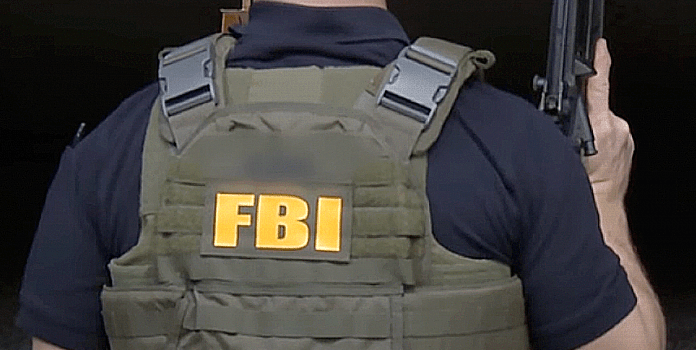(Ken Silva, Headline USA) The FBI has backtracked from a leaked intelligence bulletin that cited Southern Poverty Law Center information to justify targeting “radical-traditionalist Catholics” as potential violent domestic extremists.
“While our standard practice is to not comment on specific intelligence products, this particular field office product—disseminated only within the FBI—regarding racially or ethnically motivated violent extremism does not meet the exacting standards of the FBI,” the FBI reportedly said Thursday.
The troubling memo in question was released Wednesday by FBI whistleblower Kyle Seraphin, who noted that the bureau used information from the discredited SPLC to underpin its assessment that radical-traditionalist Catholics pose a potential threat.
According to Seraphin, the FBI’s decision to cite SPLC info is a departure from how things worked when he was a special agent.
“We got briefings that SPLC was not legitimate when I was at Quantico,” Kyle Seraphin, who was an FBI special agent for six year before getting indefinitely suspended in June 2022, reportedly told The Daily Signal.
While Seraphin may have been warned against the SPLC during his time at the FBI, the bureau does have an incestuous relationship with SPLC that stretches back decades—one that includes a troubling connection to the deadliest domestic terrorist attack in American history, the Oklahoma City bombing.
About eight years after the April 19, 1995, tragic attack, a leaked FBI memo revealed in 2003 that the SPLC had its own informants operating in an Oklahoman white supremacist compound called Elohim City, where suspects in the OKC bomb plot were known to have resided.
The leaked January 1996 FBI memo said: “Information has also been received through the Southern Poverty Law Center (SPLC) that [NAME REDACTED] telephone call from [Oklahoma City bomber] Timothy McVeigh on or about 4/17/95, two days prior to the OKBOMB attack, when [NAME REDACTED], per a source of the SPLC, was in the white supremacist compound at [Elohim City].”
Citing a “highly placed confidential source in the DOJ,” the journalists who obtained the memo reported in 2005 that the FBI had been using the SPLC as a surveillance cutout. The journalists, J.D. Cash and Roger Charles, said the FBI was using a spy network operated by the SPLC to do what many in the bureau were afraid to do because of guidelines in place during the Clinton administration.
“Attorney General Janet Reno would not allow the FBI much latitude in developing intelligence inside the far-right due to concerns that such activities might violate existing departmental guidelines on ‘domestic spying,’” J.D. Cash and Roger Charles wrote in July 2005 for the McCurtain Daily Gazette.
“To skirt Reno’s policies, the FBI developed a relationship with cutouts such as the SPLC that could use their own spies to do what the FBI could not. These non-government agents then passed their intelligence products back to the bureau.”
Because the OKC bombing suspects who had resided at Elohim City were never arrested in relation to the attack—as Headline USA reported here—Cash and Charles wondered whether the SPLC was helping the FBI conceal information about the case. Cash and Charles—the latter who worked a brief stint on McVeigh’s defense team—were developing the theory that the FBI was trying to conceal the fact that one of its informants had gone rogue and helped carry out the bombing.
The two investigators confronted SPLC founder Morris Dees with their suspicions, but Dees reportedly declined to divulge information.
“Dees admitted that he had an informant at Elohim City as the [FBI] teletype said. However, the coy attorney refused to elaborate on the situation, except to say he had warned then-attorney general Reno, six months before the attack, that, ‘An attack on the government is planned by members of the far right,’” Cash and Charles wrote in 2005.
“Dees went on to say that after the attack he immediately called Reno to say the media had it wrong. ‘I told her the attack was domestic, not foreign,’ Dees said.”
Dees was reportedly also confronted about the matter during a conference at Southeastern Oklahoma State University in 2003, but he also declined to comment at that time.
“If I told you what we were doing there, I would have to kill you,” Dees reportedly said in 2003.

